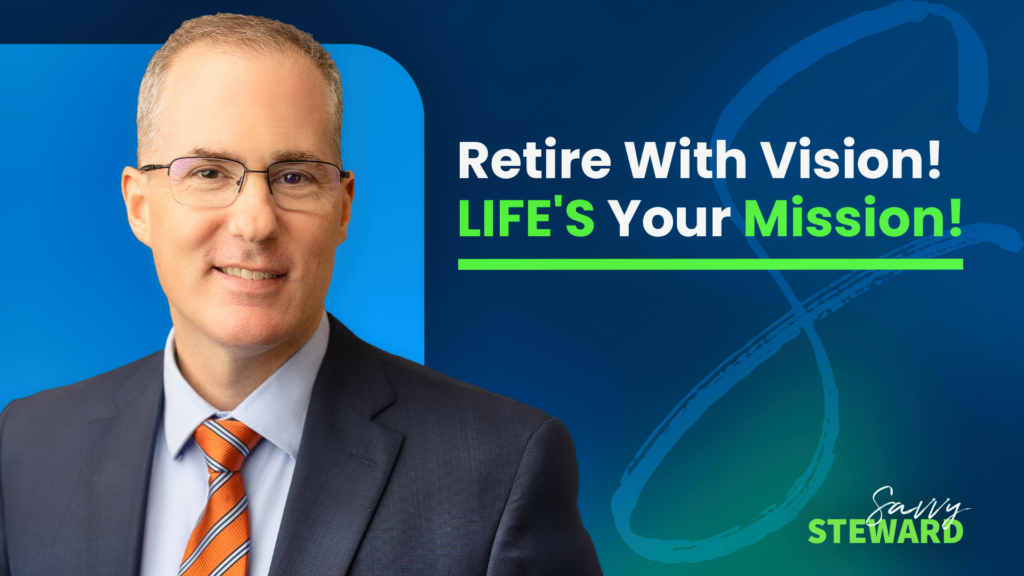Good Debt, Bad Debt: Does It EVER Pay to Borrow?
Executive Summary
Debt isn’t inherently good or bad—it’s all about how you manage it. Used wisely, debt can be a tool that helps you build wealth, invest in your future, or grow a business. But when it’s mismanaged, it can become a financial anchor, keeping you from reaching your goals.
Whether you’re managing existing debt or considering taking on new obligations, knowing when debt is working for you—and when it’s working against you—can make all the difference.

Want to watch an in-depth exploration of this topic? Check out this video on my YouTube channel, @savvysteward: Good Debt, Bad Debt: Does It EVER Pay to Borrow?
Good Debt, Bad Debt: Does It EVER Pay to Borrow?
Debt has been around forever. In ancient times, for example, if you borrowed grain, you might have repaid it by helping with your neighbor’s harvest. Over time, debt evolved into something more structured—with contracts, interest rates, and credit scores.
But the purpose hasn’t changed: it’s a tool to access opportunities you couldn’t otherwise afford.
Despite that, people tend to see debt in one of two ways, believing either it’s something they’ll always carry or something to avoid at all costs. Neither approach is entirely right or wrong—it all depends on how debt is used.
Not all debt is created equal. Good debt helps you move forward, while bad debt holds you back.
Is A Mortgage Good Or Bad Debt?
A mortgage is often considered “good debt” because it allows you to build equity, and real estate typically appreciates over time. But not all mortgages are created equal—buying the right home with the right loan terms makes all the difference.
When a Mortgage Works in Your Favor
- It’s within your means – Your mortgage payment (including taxes and insurance) is no more than 25-30% of your gross income, leaving room for savings, investments, and other financial goals.
- You have a solid down payment – A larger down payment reduces your loan amount, lowers your monthly payment, and helps you avoid costly private mortgage insurance (PMI).
- You secure favorable loan terms – A competitive interest rate and manageable loan length (like a 15- or 30-year fixed mortgage) keep your costs predictable and manageable.
- You plan to stay long enough to benefit – Buying a home makes the most financial sense if you plan to live there for at least five years, giving you time to build equity and offset closing costs.
A mortgage becomes a burden when it strains your budget, forcing cuts to essentials, savings, or retirement. Many underestimate costs like taxes, maintenance, and insurance, making a home pricier than expected. Risky loans, like ARMs or high-interest mortgages, can also lead to rising payments and financial strain.
Remember, the goal isn’t just to buy a home—it’s to buy one that allows you to build wealth without sacrificing security. Before committing, run the numbers carefully, factor in all costs, and ensure your home purchase supports long-term financial stability.
When Does Borrowing for Education Make Sense?
Taking on debt for education can be a smart move—but only if the investment pays off. A degree should open doors to better job opportunities and higher earning potential, not leave you buried in debt with no clear path forward.
Here’s how to make sure education debt works for you:
- Look at the payoff. Will this degree lead to a career with strong earning potential? If the expected salary barely covers loan payments, it may not be worth the cost.
- Borrow wisely. Just because you qualify for loans doesn’t mean you should take the full amount. Keep borrowing to a minimum and explore lower-cost education options.
- Explore alternatives. Scholarships, grants, employer tuition assistance, and community college can cut costs and reduce the need for loans.
One way to make education debt truly “good” is to plan ahead. Aptitude tests, career shadowing, and researching job prospects can help ensure your investment in education translates into financial security—not just student loan payments.
Is Financing a Car Ever a Smart Move?
Cars depreciate quickly, so they aren’t typically considered “good debt.” But sometimes, taking out a loan for a vehicle makes sense—especially if reliable transportation is essential for work, family responsibilities, or daily life.
Buying a car makes sense if the loan is manageable without stretching your budget, and you’re purchasing a reliable, fuel-efficient vehicle that serves a clear purpose. Watch out for lengthy loan terms, high interest rates, monthly payments that limit your ability to save, invest, or cover unexpected expenses.
Can Business Debt Be a Tool for Success?
For entrepreneurs, borrowing can be a powerful tool—but only if it’s used strategically. Taking on debt should be a calculated decision that supports business growth, improves efficiency, or creates opportunities that wouldn’t be possible otherwise.
When Business Debt Makes Sense:
- It funds revenue-generating activities. Borrowing to invest in equipment, inventory, marketing, or expansion makes sense if the expected return outweighs the cost of the loan.
- You have a clear repayment plan. The loan payments fit within your cash flow, and you’re confident in your ability to make timely payments without straining operations.
- You’re taking advantage of favorable terms. Low interest rates and manageable repayment schedules can make business debt a cost-effective way to scale.
- It improves operational efficiency. If a loan allows you to streamline production, reduce costs, or improve service delivery, it can contribute to long-term profitability.
Business debt can be useful, but it’s a problem when there’s no clear plan to make it work. Borrowing to cover daily expenses creates instability, and optimistic projections can backfire if the economy shifts. A smart business loan should expand your earning potential, not create unnecessary financial strain.
What Are the Warning Signs of Bad Debt?
Bad debt doesn’t always announce itself, but there are clear warning signs that it’s working against you rather than for you. If any of these apply to your situation, it’s time to reassess your borrowing strategy.
1. Debt Is Growing Faster Than You Can Pay It Off
High interest rates—especially on credit cards and payday loans—can cause balances to balloon out of control. If your debt keeps increasing despite regular payments, the interest is outpacing your ability to repay, making it harder to break free.
2. Your Debt-to-Income Ratio Is Too High
Your debt-to-income ratio (DTI) is a critical measure of financial health. If more than 36% of your income goes toward debt payments, it limits your ability to save, invest, or handle unexpected expenses. A rising DTI is a red flag that debt is becoming unmanageable.
3. You’re Borrowing Without a Clear Financial Benefit
Debt should serve a purpose—funding education with a strong return on investment, financing a home you can afford, or expanding a business. If a loan or credit card balance isn’t directly contributing to financial stability or growth, it’s more likely to be an unnecessary drain.
4. You Rely on Debt to Cover Everyday Expenses
If you use credit cards to cover groceries, utility bills, or other essentials because your income isn’t enough, debt becomes a crutch rather than a tool. This cycle often leads to larger balances and higher interest payments, making financial stability harder to achieve.
5. You’re Stressed About Making Payments
If keeping up with debt payments is causing anxiety or forcing you to delay other financial priorities—like saving for retirement, investing, or even covering regular expenses—it’s a sign that debt is taking more than it’s giving.
How Do You Regain Control if Debt Is Weighing You Down?
If you’re dealing with bad debt, don’t panic. It’s not a life sentence; it’s a hurdle you can clear with the right strategy.
Here’s how to start turning things around:
- Assess the Full Picture
Before making a plan, get clear on what you owe. List all debts, including balances, interest rates, and minimum payments. Understanding your total debt load helps you prioritize which to tackle first. - Prioritize High-Interest Debt
Not all debt is equally damaging. Focus on eliminating high-interest debt (like credit cards and payday loans) first since they compound quickly. - Cut Unnecessary Spending
Redirect money from non-essential expenses toward debt repayment. This doesn’t mean eliminating all enjoyment from life, but reviewing your budget can reveal areas where small changes add up. - Consider Consolidation or Refinancing
If you’re juggling multiple high-interest debts, a lower-interest consolidation loan or refinancing could simplify payments and reduce interest costs. But be cautious—this only works if you avoid accumulating new debt. - Build a Small Emergency Fund
It may seem counterintuitive to save while paying off debt, but having a small financial cushion ($1,000–$2,000) prevents you from relying on credit for unexpected expenses. - Adjust Your Lifestyle (If Necessary)
If debt payments are overwhelming, it might be time for bigger changes—downsizing a home, selling an expensive car, or pausing luxury expenses to free up cash for repayment. - Commit to No New Debt
Avoid using credit cards unless you can pay the balance in full each month. A key part of getting out of debt is stopping the cycle of adding to it. - Reallocate Debt Payments Toward Wealth-Building
Once a debt is eliminated, redirect those payments toward savings, investments, or financial goals. The money you were putting toward debt can now work for you instead of against you.
Taking control of debt isn’t just about freeing up cash—it’s about reclaiming financial stability and creating opportunities for the future.
Plan your debt, no regret!
Contact Information
Keith Demetriades, CFP®, CKA®, is dedicated to helping individuals, families, and organizations integrate faith-based principles into their financial planning. Oikonomia is a foundational concept in his practice, reflecting his commitment to stewardship, purpose, and making your life count!
Keith welcomes conversations about the topics discussed in this piece and is available to assist in creating a financial plan that aligns with your faith and values. For more information or to start a conversation about your financial future, contact Keith Demetriades at (806) 223-1105 or visit his website at https://www.kingsview.com/advisor/keith-demetriades/.
Disclaimer: The information provided in this blog is for educational purposes only and should not be considered financial advice. Please consult a qualified financial advisor to discuss your specific situation and needs. Past performance does not indicate future results, and all investments carry risks, including potential loss of principal. Any financial product or strategy references are purely illustrative and should not be construed as endorsements or recommendations.



